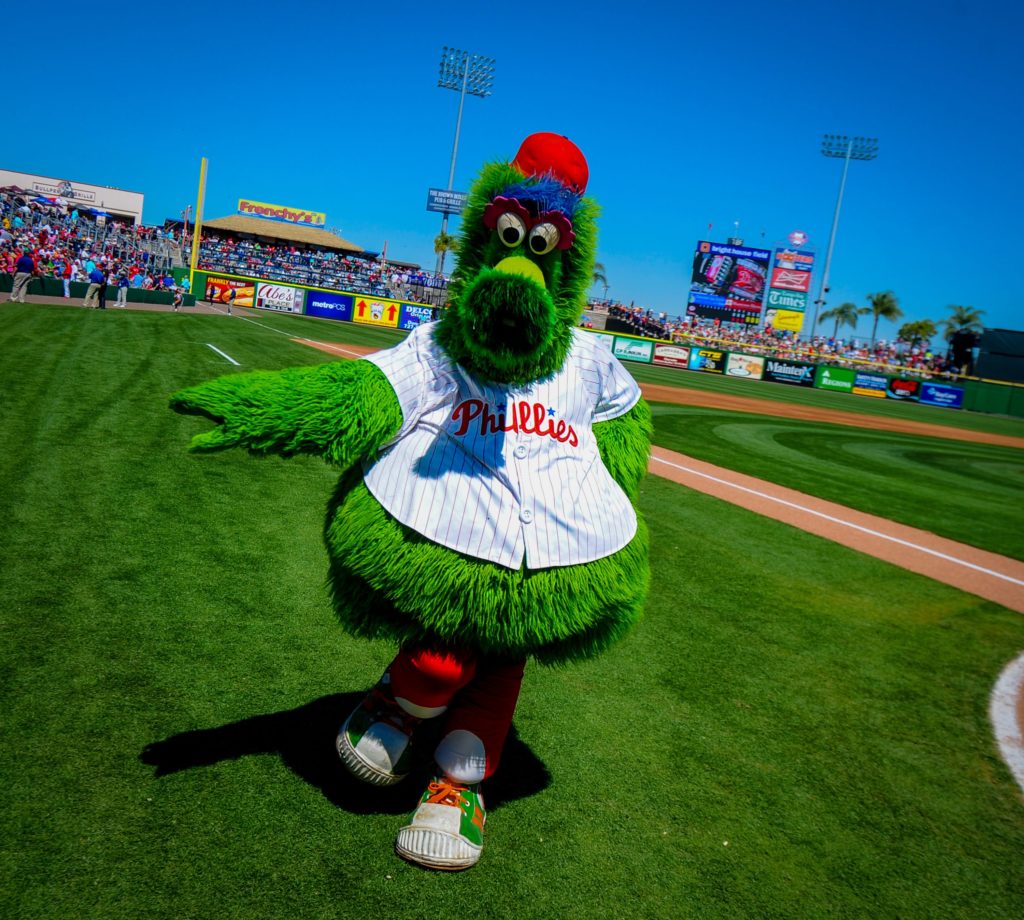
We saw a split decision on a lawsuit between the Philadelphia Phillies and the creators of the Phillie Phanatic, with the creators holding rights to the original design and the team allowed to field a derivative design.
U.S. Magistrate Judge Sarah Netburn ruled that Bonnie Erickson and Wayde Harrison indeed held copyright to the original Phillie Phanatic design, but also ruled that the Phillies had made enough changes to the design in 2020 to warrant its definition as a derivative work and under the ownership of the baseball team. Erickson and Harrison had created the Phanatic in 1978, but then sought to renegotiate the licensing agreement and terminated a 1984 Phanatic copyright assignment to the Phillies. The pair then refiled copyright for the Phanatic and sought a new licensing deal with the Phillies.
The Phillies refused and then filed suit claiming the pair had an improper copyright on the Phanatic. Those claims were rejected by Netburn, leaving ownership of the original design with Erickson, a former designer for Jim Henson’s Muppets and a creator of the iconic Montreal Expos’ Youppi!, and Wayde. But that ownership may not be worth much, as she also held that the new derivative design unveiled in 2020 was sufficiently different to be considered a new work under copyright law.
He has evolved, but clearly hasn’t matured. pic.twitter.com/Tmo5jHNQOB
— Philadelphia Phillies (@Phillies) February 23, 2020
”To be sure, the changes to the structural shape of the Phanatic are no great strokes of brilliance, but as the Supreme Court has already noted, a compilation of minimally creative elements, ‘no matter how crude, humble or obvious,’ can render a work a derivative.” Netburn wrote.
That logic was contested by Erickson and Harrison in a press release issued today:
At the same time, we disagree with that part of the decision which found that very minor changes to the Phanatic made by the Phillies (characterized even by the judge as “no great strokes of brilliance”) were sufficient to create a 2.0 derivative Phanatic that the Phillies can use (but with significant limitations) going forward. We maintain that none of the trivial changes made by The Phillies—which debuted four months before their rights in the original Phanatic expired—are original artistic expression, and do not individually or collectively constitute a copyrightable derivative work.
If left uncorrected this low bar for a derivative work will thwart the very purpose and intent of the copyright termination provisions established by Congress to fairly compensate original creators for their works 35 years after they have licensed or granted rights in their creations, as Bonnie and Wayde did in 1984.
Both sides can contest the findings to Senior U.S District Judge Victor Marrero, who is overseeing the case. Judging from the tone of the press release, Harrison and Wayde are sure to do so.
Photo of the original Phillie Phanatic courtesy Philadelphia Phillies. Yes, compare the two versions.
RELATED STORIES: New Look Philly Phanatic Unveiled; Phillies File Lawsuit Against Phillie Phanatic Creator
